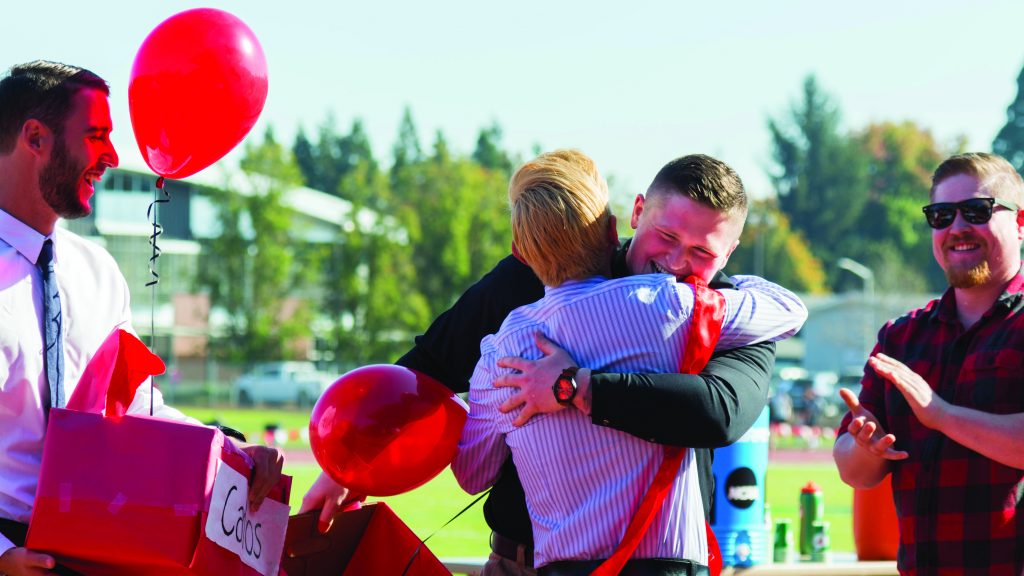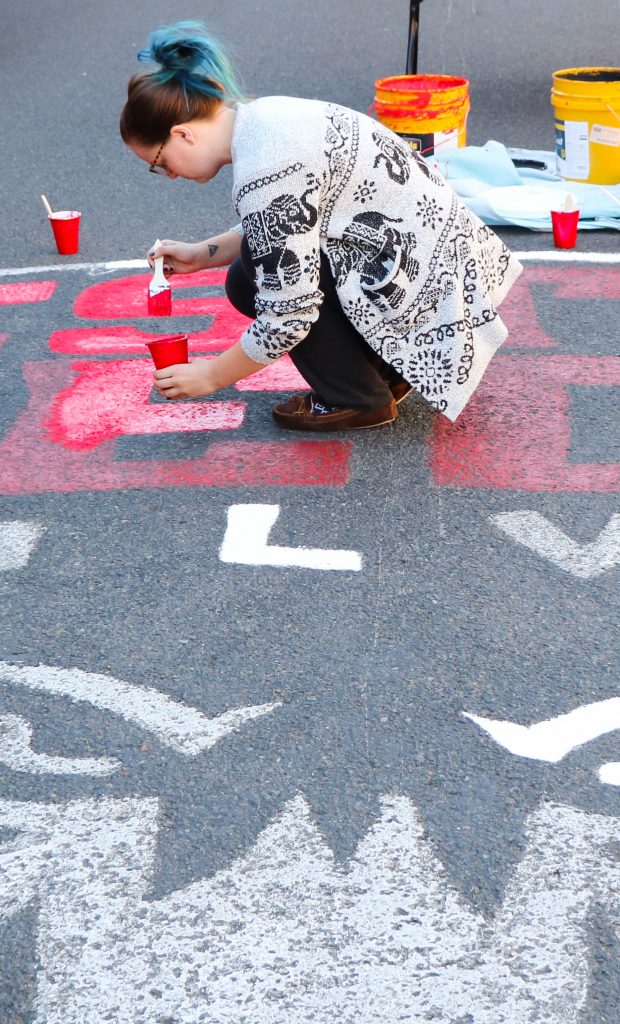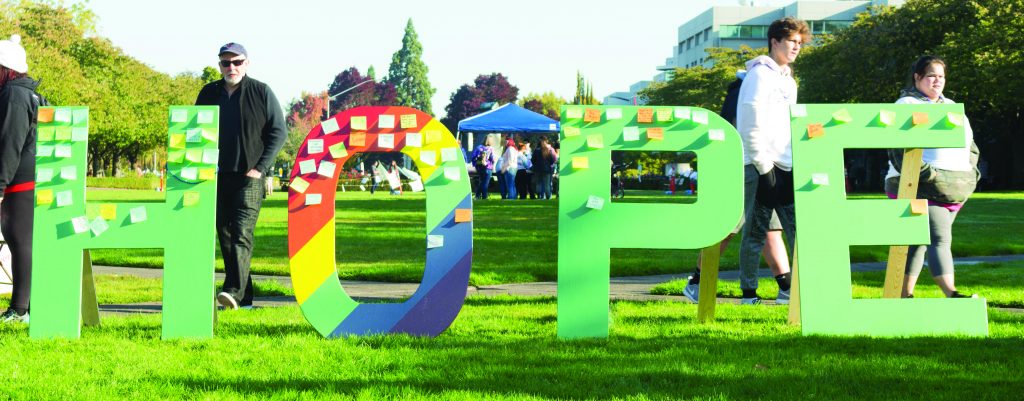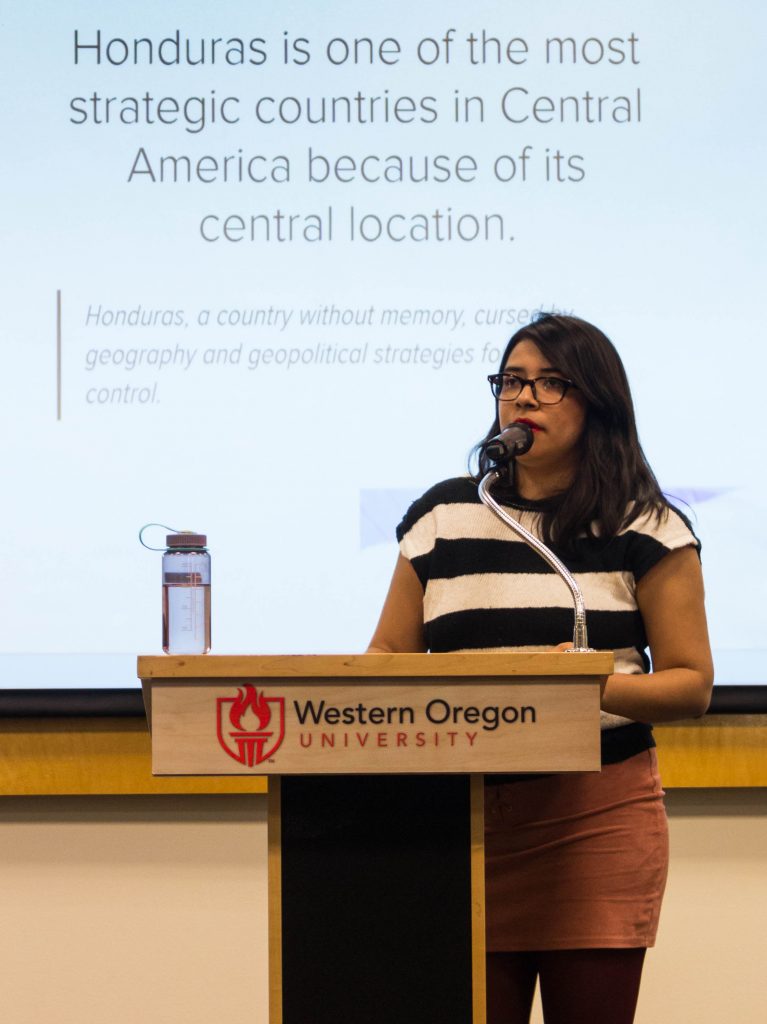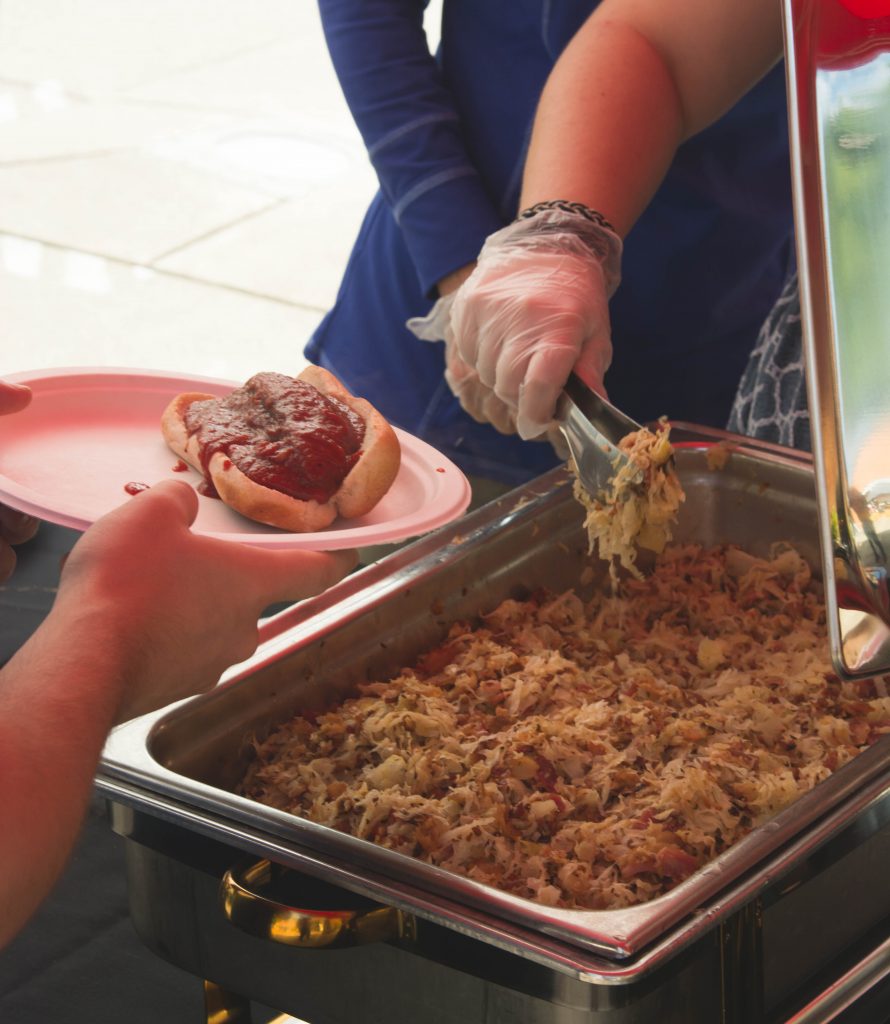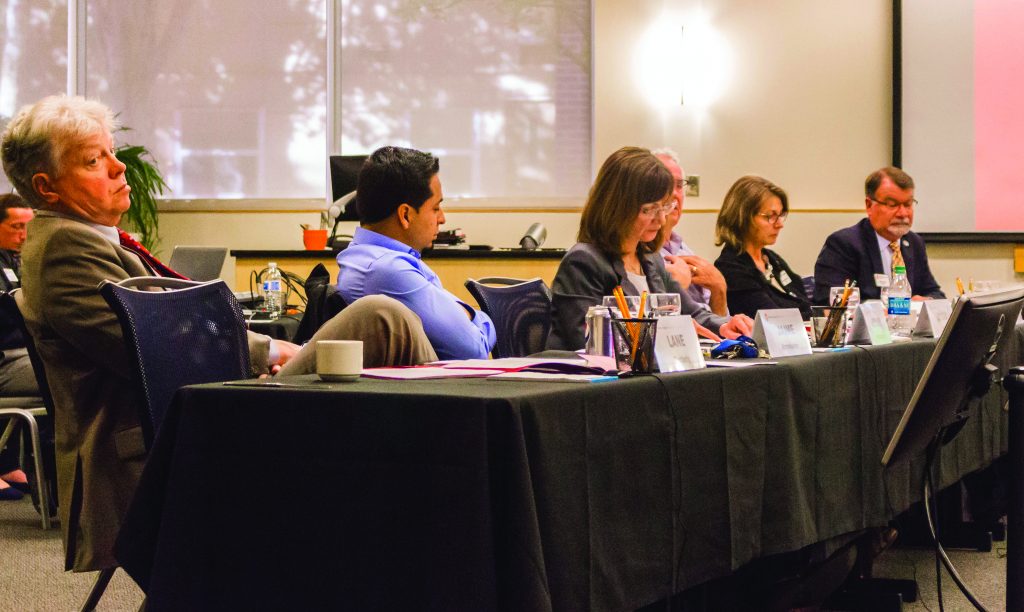
Bailey Thompson | News Editor
At their Oct. 17 meeting, the Western Board of Trustees wrestled with a number of critical issues to Western’s future success. Regularly featured in these meetings, the Board heard reports from groups such as Faculty Senate, Staff Senate, ASWOU, President Rex Fuller and numerous university committees.
One thing that was unique to this meeting, though, was the October discussion theme: enrollment.
Vice President of Student Affairs, Dr. Gary Dukes, presented on this topic, sharing with the Board that Western enrollment is down by three and a half percent this year, mirroring the trends of other Oregon universities. He also informed the Board about steps currently being taken to improve in this area: the university aims to attract more first-year students by improving affordability, more transfer students by reaching out to those in the Oregon Promise program, more graduate students by developing new programs and more international students by adding new countries to Western’s outreach.
Dukes also discussed a number of other strategies that Western is implementing to increase retention and new enrollment.
After the meeting, Board of Trustees Faculty Representative Dr. Gavin Keulks, English professor and Honors Program Director, shared his theory about the cause of enrollment decline.
“There just aren’t as many people going to college because…some people who can go to the job market are choosing to do that,” said Keulks. “Also, the tuition promise with community colleges means that more people are going to community colleges and then transferring in…and our enrollment has been going down.”
Commenting on the gravity of the situation, Keulks continued by saying, “I don’t think it’s an alarm, but it’s certainly not a little thing because this is where it impacts students. If enrollment keeps going down…there will be pressure to increase tuition.”
In the end, however, Keulks remarked that “everyone (on the board) has a deep love of the university and a genuine to concern that the university is thriving,” meaning that “if we fight about something, it’s because we want the school to make the right choice.”
If students are interested in learning more about this meeting, Keulks suggested looking on the university’s website, as there are a number of documents and statistics that can be reviewed far faster than it would have taken to attend the entire six-hour meeting.
Contact the author at howlnews@wou.edu
Photo courtesy of Ashlynn Norton


